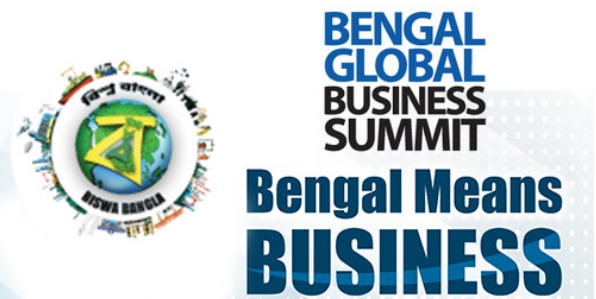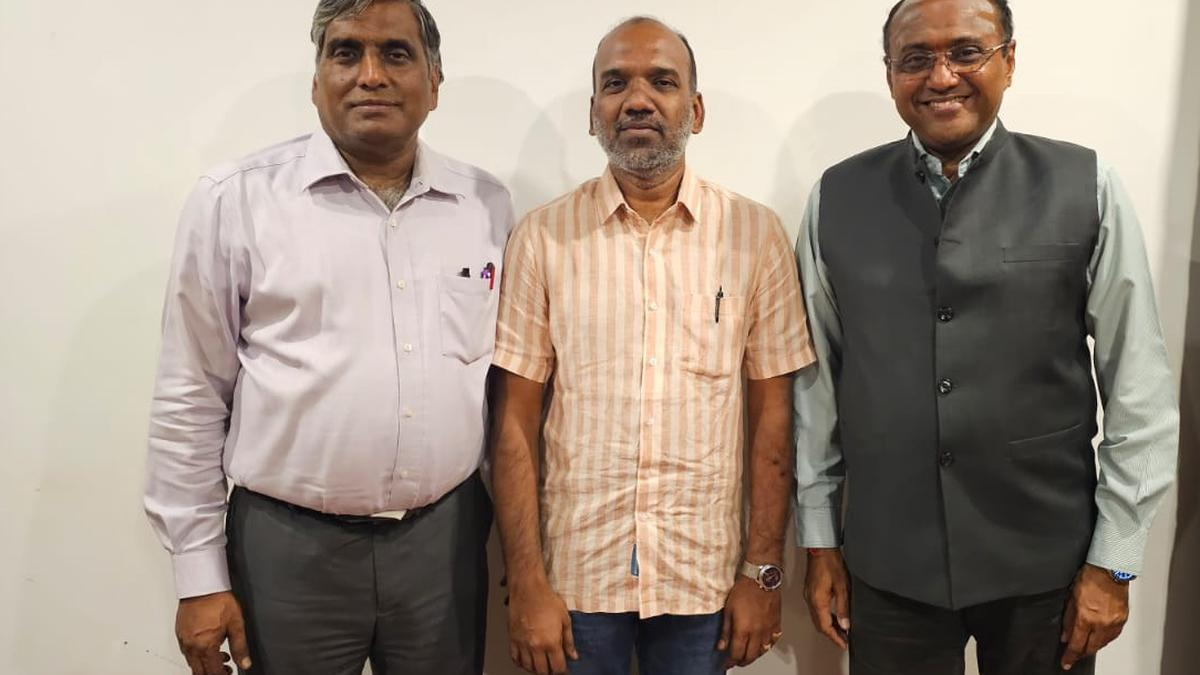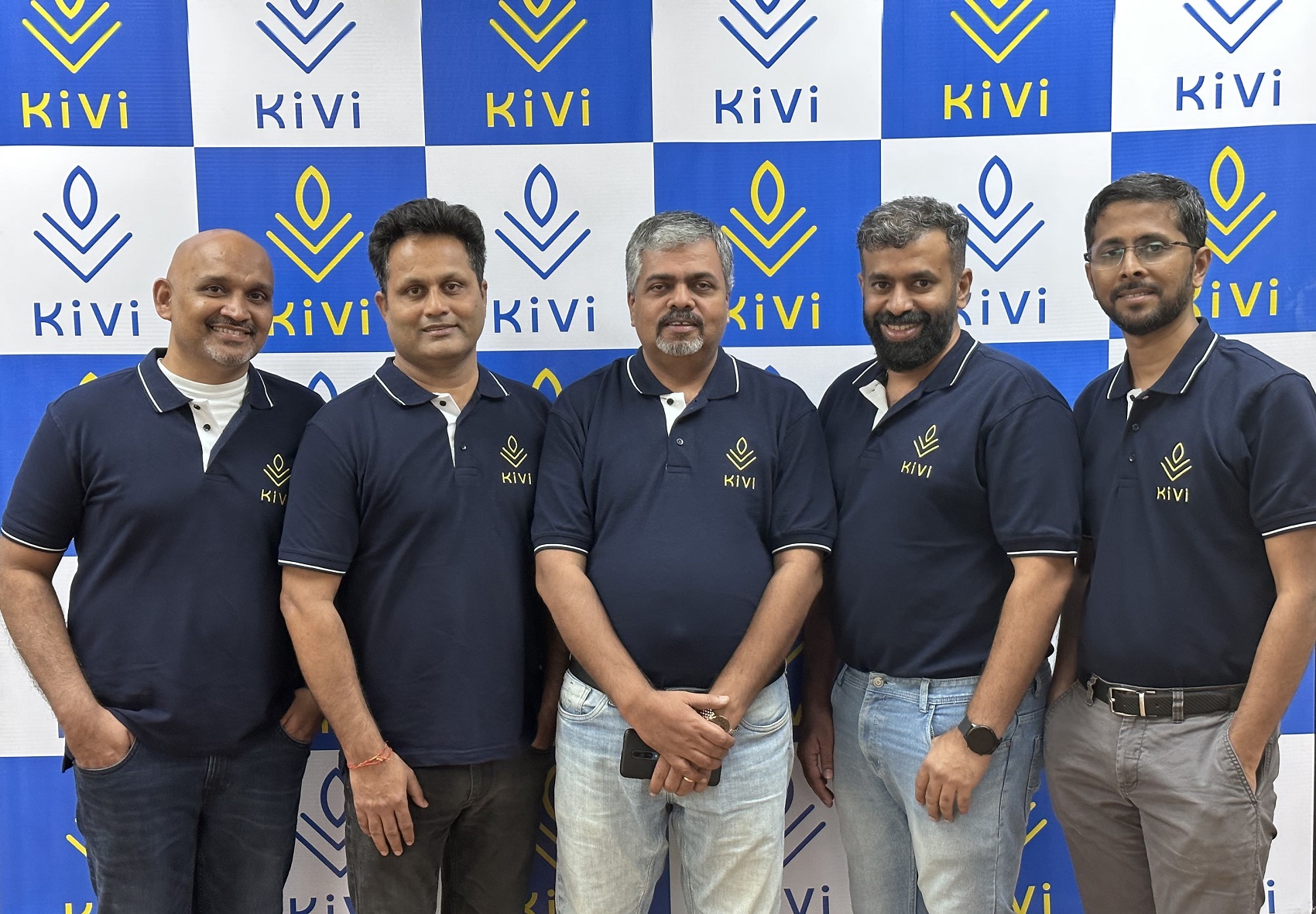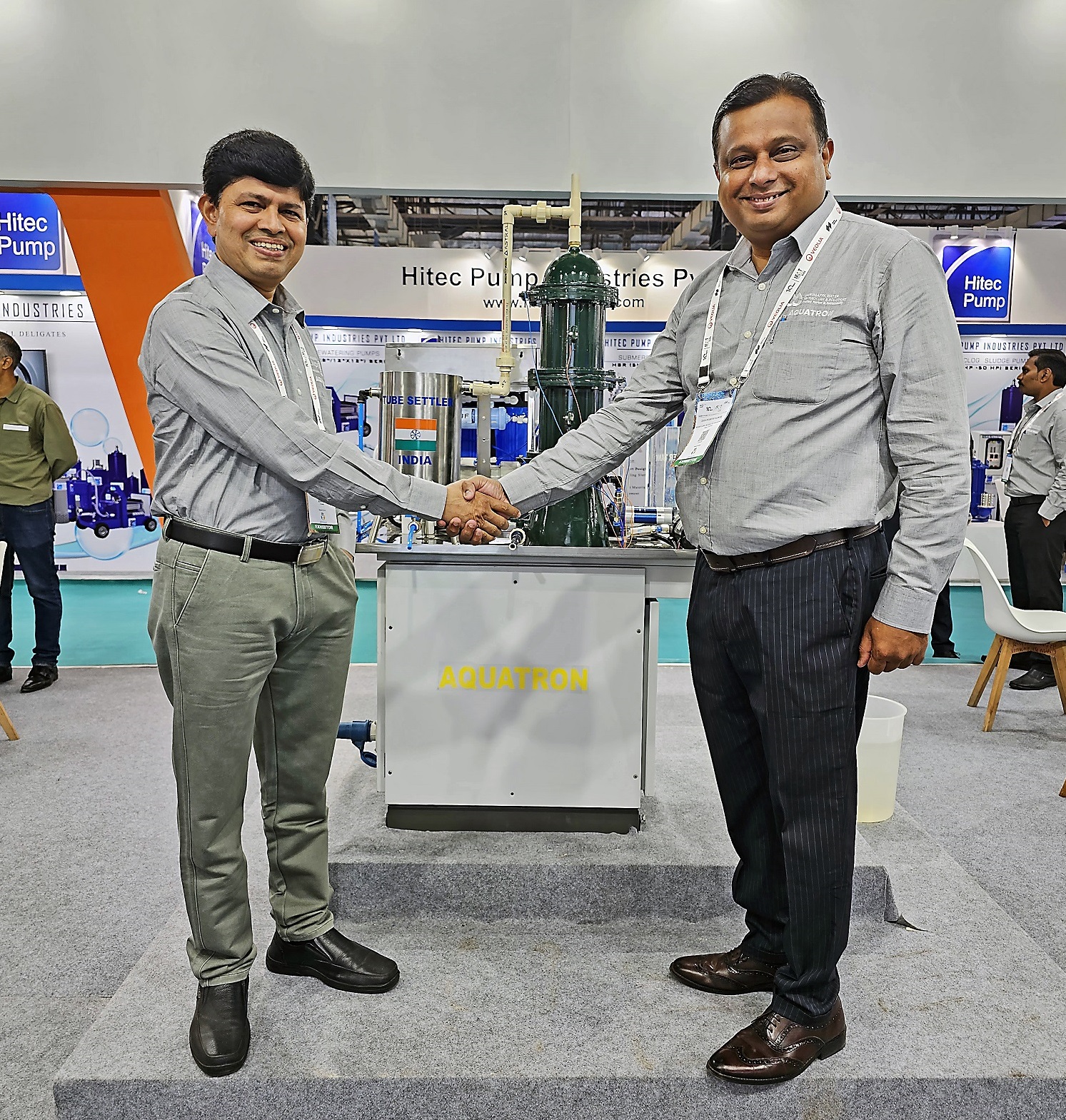Bengal Global Business Summit – Bengal means business
 The government of West Bengal and the Indian Chamber of Commerce (ICC) conducted a session in Chennai themed, Bengal means business. Amit Mitra, Principle Chief advisor to the Chief Minister and the Finance department, Government of West Bengal, addressed the gathering in a run up to the seventh Bengal Global Business Summit.
The government of West Bengal and the Indian Chamber of Commerce (ICC) conducted a session in Chennai themed, Bengal means business. Amit Mitra, Principle Chief advisor to the Chief Minister and the Finance department, Government of West Bengal, addressed the gathering in a run up to the seventh Bengal Global Business Summit.The event highlighted how West Bengal leads the nation in exports, accounting for 12 per cent of leather exports and 10 per cent of iron and steel exports. The state boasts the second-highest number of MSMEs in the country, with around 90 lakh units, constituting 14 per cent of India’s MSMEs. West Bengal has emerged as the 4th largest economy in India growing at a rate of 8.1 per cent annually. With a large consumer base of over 300 million people, is strategically located with access to northeast India and neighboring countries.
The state offers over 200 ready-to-invest industrial parks/estates, covering approximately 10,000 acres. Furthermore, a 200-acre IT and electronics park is under construction at Rajarhat. The state is actively developing three industrial growth corridors in Dankuni-Raghunathpur, Dankuni-Kalyani and Dankuni-Haldia, to accelerate industrialisation. A new deep-sea port is under construction at Tajpur, apart from the two major container and bulk handling ports in Kolkata and Haldia. Several flagship projects are shaping the state’s economic landscape. The Jangal Sundari Karmnagari Industrial Township is under development across 4000 acres in Purulia. Mining operations at the Deocha-Pachami-Dewanganj-Harinsigha, the world’s second-largest coal block, are poised to commence soon.
The government is focusing on industrial development through policies promoting ease of doing business, land and labor reforms. Some of the key focus sectors are agriculture, IT, manufacturing, healthcare, tourism, logistics, MSMEs, infrastructure, mining and renewable energy.
Forging industry – doubling production in three years
 The Indian forging industry comprises about 400 units predominantly in the west and north and has an annual production of 2.2 million metric tonnes. It occupies 7.8 per cent of the global market and is second in total quantity to China which produces 11 mmt. The China plus one factor and the spiralling energy costs in Europe have enhanced the prospects for Indian players and in the next three years, the industry’s capacity is expected to increase to 3.5 – 4 million tonnes.
The Indian forging industry comprises about 400 units predominantly in the west and north and has an annual production of 2.2 million metric tonnes. It occupies 7.8 per cent of the global market and is second in total quantity to China which produces 11 mmt. The China plus one factor and the spiralling energy costs in Europe have enhanced the prospects for Indian players and in the next three years, the industry’s capacity is expected to increase to 3.5 – 4 million tonnes.At present, the industry mainly supplies to auto companies, but with the emergence of battery based electric vehicles, the need for parts have substantially reduced. “Parts of 2-3 kg category will come under severe threat in about 7 years from now and 40 per cent of the industry is expected to be hit,” said Vidyashankar Krishnan, Managing Director, M M Forgings. Battery based EV two-wheelers and passenger cars are expected to have 80 per cent lesser forged parts in terms of weight, however, this could be rebalanced by hybrid vehicles which needs higher percentage of forging parts than the current ICE vehicles. “I believe hydrogen is the future and if the shift in vehicles is to hydrogen-based ICE or fuel cells, then the demand for forging industry will increase,” highlighted Krishnan.
The industry is also venturing into other sectors like defence, aerospace and railways. “Currently automobiles form 80 per cent of our orders but we are looking to realign with 60 per cent auto and 40 per cent non-auto customers by 2030,” said Muralishankar, Managing Director, Super Auto Forge.
The key plans for the Indian forging industry over the next 5 years are:
• Expand total forging production capacity from the current 2.2 million metric tonnes to around 3.5 – 4 million metric tonnes.
• Upgrade technology and automation levels in production to be on par with global standards, as labour costs rise in India.
• Focus on non-auto segments like defense, aerospace, railways etc. to diversify business and offset any disruption from electrification of autos.
• Develop capabilities for new materials like aluminum and for disruptive technologies like additive manufacturing.
• Tap business opportunities emerging from regions looking to diversify supply chains away from China under the ‘China Plus One’ strategy.
• Skill workforce to adapt to changing technology like those required for electric vehicles.
At the moment, 35 per cent of India’s forgings is exported and it is expected to increase with demand picking up from North America and Europe. The industry is expected to grow at about 10-15 per cent in the next seven years.
The Indian forging industry stands at an important juncture of its next phase of growth. The ForgeTech India 2023 is expected to facilitate this growth by hosting more than 600 delegates from across the globe at Pune from 3rd to 5th November.
KiVi secures Rs 15 crore in seed round
 Agri-fintech startup KiVi, operated by Agrosperity Tech Solutions Private Limited, has successfully concluded its seed round of Rs 15 crore. The company serves the farmgate ecosystem with credit, commerce and distribution. The funding round was led by Caspian Leap for Agriculture Fund, Piper Serica Angel Fund, YAN Angel Fund, Impact Innovators and Entrepreneurs Foundation, among other investors. Incubated at IIT Madras Research Park, KiVi, stands for “kisan vikas” or farmer development business.
Agri-fintech startup KiVi, operated by Agrosperity Tech Solutions Private Limited, has successfully concluded its seed round of Rs 15 crore. The company serves the farmgate ecosystem with credit, commerce and distribution. The funding round was led by Caspian Leap for Agriculture Fund, Piper Serica Angel Fund, YAN Angel Fund, Impact Innovators and Entrepreneurs Foundation, among other investors. Incubated at IIT Madras Research Park, KiVi, stands for “kisan vikas” or farmer development business.Joby C O, Founder & CEO of KiVi, expressed his enthusiasm, stating, “We are excited to welcome our first institutional investors who share KiVi’s vision to make agriculture a livelihood of choice.” The farmgate ecosystem, which includes farmer households and agri-entrepreneurs such as input retailers, output aggregators, farmer producer organisations, and equipment renters, represents a vast market opportunity for credit and commerce. However, this ecosystem has been underserved by formal markets due to unique challenges, including seasonal cash flows, lack of formal income and land ownership proof, fragmented landholding and traditional lenders’ inability to establish a cost-effective delivery model.
KiVi is determined to bridge these gaps by leveraging technology and last-mile transaction capabilities. Operational in Tamil Nadu and Bihar, KiVi has already enabled more than 1500 farmers to access credit and launched MSME loan offerings to agri-entrepreneurs. Additionally, they have facilitated commerce and trade finance in commodities such as wheat, paddy and maize.
Aquatron – converting waste water to drinking water
 Murugappa Water Technology and Solutions (MWTS) has joined with Scalene Livprotec to redefine the wastewater industry. Together, they unveiled Aquatron a wastewater treatment technology that uses various principles of physics to turn waste water to drinking water standards. There are no biological or chemical processes involved in this.
Murugappa Water Technology and Solutions (MWTS) has joined with Scalene Livprotec to redefine the wastewater industry. Together, they unveiled Aquatron a wastewater treatment technology that uses various principles of physics to turn waste water to drinking water standards. There are no biological or chemical processes involved in this.Aquatron uses its patented, Fine Particle Shortwave Thrombotic Agglomeration Reactor (FPSTAR) technology to convert the impurities into their elemental form and recovers clean water from it. This is done using a Reduction-Facilitated-Osmotic-Diffusion (RFOD) process instead of an RO process. The entire process transforms industrial wastewater into a valuable resource. It acts as a water time machine that aids the circular economy of water. The recovered water may be used for drinking or other processing purposes.Jayateerth Nadgir, Chief Executive, MWTS said, “Our aim is to help our customers reduce operational costs and enjoy ROI benefits. Aquatron will increase operational profitability and also reduce environmental impact.”
Dr. Rajesh Bhat – President, Energy and Water, Scalene Livprotec said, “Aquatron represents a patented water recovery technology capable of achieving Zero Liquid Discharge (ZLD) and Zero Discharge of Hazardous chemicals (ZDHC). This is realised without the reliance on chemical or biological processes. It successfully recovers water to drinking water standards, all while avoiding the generation of toxic sludge and maintaining a low total cost of ownership (TCO).
